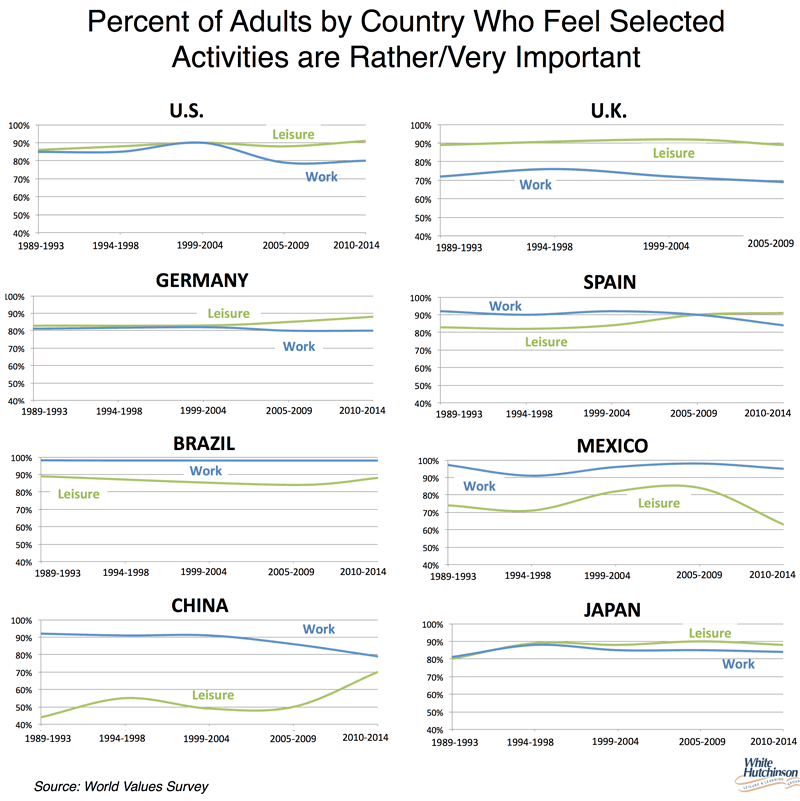
Vol. XV, No. 5, June 2015
- Editor's corner
- Who's vacationing where this summer?
- World's longest running seminar program coming to Chicago July 14-16
- New School consumers are flocking to eatertainment restaurant & old-school game venues
- America's middle class is shrinking
- Lasertron to open adult-oriented laser tag center
- The changing importance of work and leisure throughout the world
- Paintball in Cartagena, Columbia
- Where do all the children live?
The changing importance of work and leisure throughout the world
Last month Randy White, our CEO, posted a blog about how leisure is rising in importance in American's lives while work is declining in importance (If you haven't subscribed to Randy's blog, you are missing out). He analyzed data from The World Values Survey that is periodically conducted in almost 100 countries containing almost 90% of the world's population. The survey is used by political scientists, sociologists, social psychologists, anthropologists and economists to analyze many topics including the importance of different life activities and subjective well-being. The analysis showed a decline in the importance of work and an increase in the importance of leisure since the Great Recession.
So we decided to dig into the World Values Survey data to discover any long term changes as well as any impact the Great Recession might have had on how people in other countries value work and leisure. The following graphs show the percent of adults in the specified countries who consider work and consider leisure as rather important or very important in their lives for the time span of 1989 to 2014 (excepting U.K. where the most recent data is for 2009).
Both Germany and Spain show the same pattern as the U.S. following the Great Recession - leisure went up in importance and work went down, with leisure having greater importance. In Brazil, work is more important than leisure, but leisure did go up in importance. In Mexico, work is more important and both work and leisure have seen recent declines in importance. Work is more important in China, but it is declining in importance while leisure is growing in importance. Japan is showing little recent changes, with leisure topping work in importance.
Vol. XV, No. 5, June 2015
- Editor's corner
- Who's vacationing where this summer?
- World's longest running seminar program coming to Chicago July 14-16
- New School consumers are flocking to eatertainment restaurant & old-school game venues
- America's middle class is shrinking
- Lasertron to open adult-oriented laser tag center
- The changing importance of work and leisure throughout the world
- Paintball in Cartagena, Columbia
- Where do all the children live?



